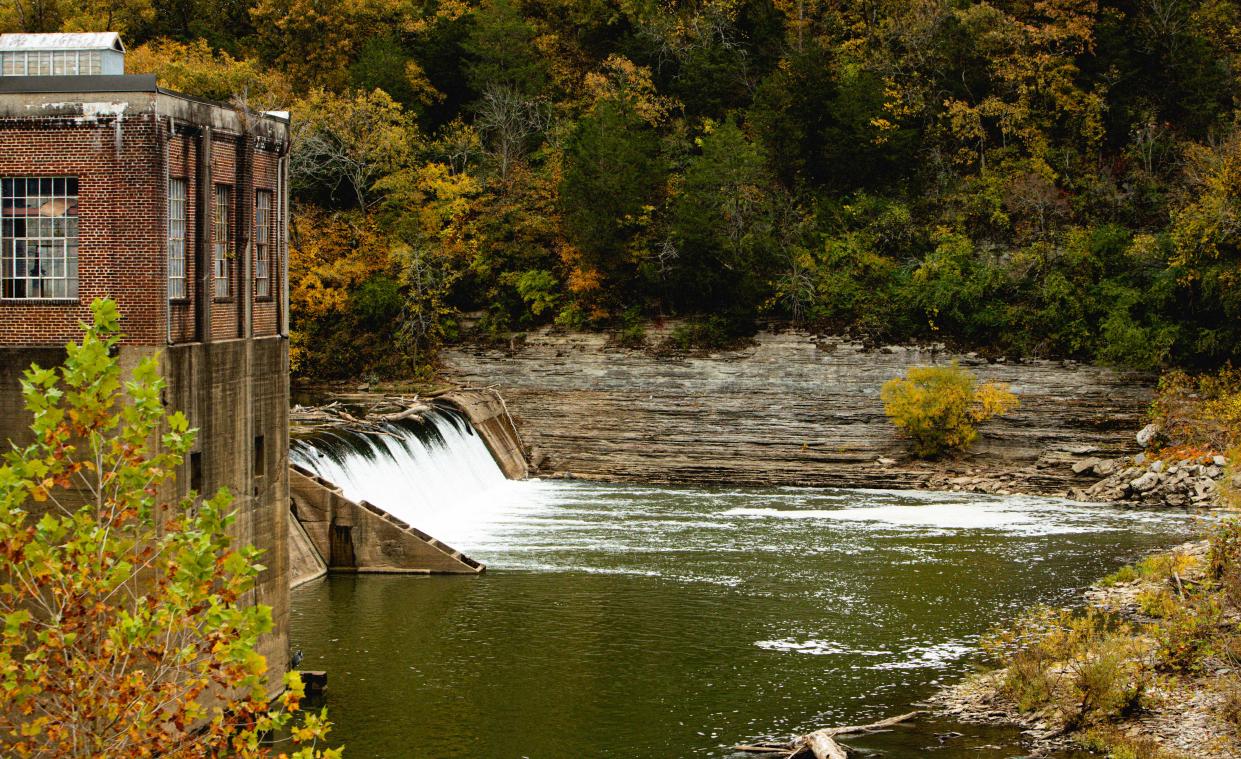Bill to protect Duck River passes first state hurdle as landfill proposal looms in Columbia

- Oops!Something went wrong.Please try again later.
After a state House subcommittee's unanimous vote Tuesday in favor of expanding protections to the Duck River, cautious optimism is settling in for county and state elected leaders hoping to keep waters clean for the “most biodiverse river in the world."
But lingering questions are keeping community advocates vigilant.
House Bill 0447, sponsored by Rep. Scott Cepicky, R-Culleoka, would expand the state’s Class II Scenic status along the river in Maury County, acting as a guardrail of protection.
With Maury County commissioners in tow Tuesday, Cepicky stood before the House Agriculture & Natural Resources Subcommittee advocating for the expansion of protective boundaries for the Duck River under the bill.
Subcommittee chairman, Rep. Bud Hulsey, R-Kingsport, said Tuesday, the committee had seen a large run of contentious bills in the past couple of weeks, but none with such support as the bill to protect Duck River.
“I never got as many emails as I got from your people in Maury County,” Hulsey told Cepicky.
Cepicky told committee members that there was a time when the river was not the most biodiverse, referring to when pollution from the former Monsanto Chemical Company imperiled the river.
“It’s taken a long time to get this river back to where it was,” Cepicky said. “We have already protected the eastern side as a class II pastoral scenic waterway,” Cepicky said. “We’re asking to protect its western side.”
Also leaning on the river’s use for outdoor recreation, Cepicky punctuated his comments with the importance of protecting the fastest-growing county in Tennessee — Maury County’s water source for “the next hundred years.”
Previti: Hats off to citizens, agriculture exempt from restrictions
Maury County Commission Chairman Eric Previti, along with Mayor Sheila Butt and other commissioners present at the subcommittee meeting in Nashville, said “hats off” to citizens who voiced support for the bill by sending almost 1,000 emails to elected leaders.
Rep. Chris Todd, R-Madison County, raised questions Tuesday about how expanding the river's scenic status could create limitations to agriculture under the new protections, though the bill would protect existing agriculture developments with some exceptions.
While highlighting decades of progress to keep water protected from pollutants, Todd said his other concern was property rights.
“Protecting this resource is very important,” Todd said. “But I’m always concerned about property rights and how something is going to affect someone else.”
Todd asked Cepicky about further ramifications for property owners regarding land use and discharge of materials into rivers.
Cepicky deferred to TDEC's goal of maintaining water quality, stating “their job is not to prohibit business or land use, but to protect the water’s pristine nature.”
While the bill’s language focused on waterway protections, language for the designation of Class II rivers prohibits activity such as mining, timber harvesting and building of roads.
Looming landfill proposal shrouded by uncertainty
Meanwhile in the Maury County community, some questions remain about a lingering solid waste landfill proposal by Baton Rouge-based Trinity Business Group, which has applied for multiple building permits on the former Monsanto Chemical Company site through the Tennessee Department of Environment and Conservation.
Last fall, community advocates moved swiftly to rally against the solid waste landfill, including a tire recycling center, that would be located approximately two miles from the Duck River at the Monsanto site. The old Monsanto property is designated as a Superfund site, which is mandated for EPA rehabilitation due to the presence of hazardous waste.
According to de facto expert and former Maury County Commissioner Sue Stephenson, the Monsanto property contains four buried capped pits containing phosphorus.
Elected leaders hope that the legislation will thwart landfill developments, that could cause pollution of the biodiverse river.
Last fall, the Maury County Commission added further protections to the Duck River by adopting the Jackson Law, a state law that would prohibit the construction of landfills without the approval of city and county government.
Jeremy Hooper, TDEC Solid Waste Management representative, spoke before the committee Tuesday, explaining that the bill would expand the scenic status, which could in-turn challenge landfill development.
“I can speak to solid waste management,” Hooper said. “There is a two-mile buffer [from the Duck River], in which solid waste landfills cannot be permitted. If this [status] is extended to that, we’d have to consider that in the permitting process.”
Butt recently made five new appointments to the existing Maury-Marshall Solid Waste Board at February’s commission meeting, which will begin to seek solutions for new landfill sites.
The bill will be heard by the full House committee on March 8.
Check back with The Herald for more as this story unfolds.
This article originally appeared on The Daily Herald: Bill to protect Duck River passes first state hurdle as landfill proposal looms

